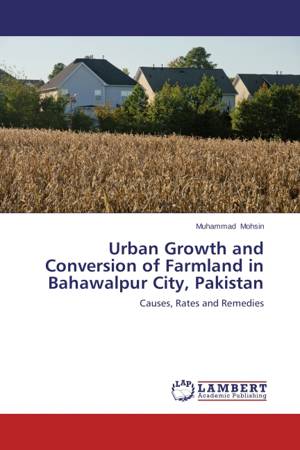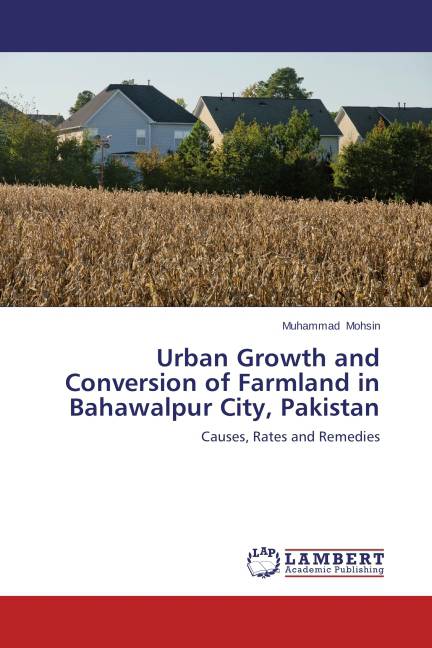
Bedankt voor het vertrouwen het afgelopen jaar! Om jou te bedanken bieden we GRATIS verzending (in België) aan op alles gedurende de hele maand januari.
- Afhalen na 1 uur in een winkel met voorraad
- In januari gratis thuislevering in België
- Ruim aanbod met 7 miljoen producten
Bedankt voor het vertrouwen het afgelopen jaar! Om jou te bedanken bieden we GRATIS verzending (in België) aan op alles gedurende de hele maand januari.
- Afhalen na 1 uur in een winkel met voorraad
- In januari gratis thuislevering in België
- Ruim aanbod met 7 miljoen producten
Zoeken
Urban Growth and Conversion of Farmland in Bahawalpur City, Pakistan
Causes, Rates and Remedies
Muhammad Mohsin
Paperback | Engels
€ 69,45
+ 138 punten
Omschrijving
Farmland is the most vital resource for human s survival. Although, the problem of farmland conversion is witnessing all over the world but it is more serious in developing countries like Pakistan. In recent years, despite commercial development, the expansion of housing schemes and colonies seems to have an emerged as a dominant factor of farmland abuse in Bahawalpur city. To investigate farmland conversion, the focused has been given to assess the urban growth of Bahawalpur, main causing factors and the rate of farmland conversion. Data has been gathered from various sources like TMA city and field survey. Results revealed that Bahawalpur city is currently experiencing an exponential increase in population from last few decades and directly put huge stress on limited natural resources like farmland. The collected data of 102 housing colonies from the period of 1950-2011 disclosed worrisome facts that about 1,142 acres of farmland have been converted into these colonies. Now this trend is becoming a serious threat for local arable land sustainability and needs to be checked urgently. Therefore, some possible remedial measures have been suggested for tackling this problem.
Specificaties
Betrokkenen
- Auteur(s):
- Uitgeverij:
Inhoud
- Aantal bladzijden:
- 148
- Taal:
- Engels
Eigenschappen
- Productcode (EAN):
- 9783659590580
- Verschijningsdatum:
- 9/09/2014
- Uitvoering:
- Paperback
- Afmetingen:
- 150 mm x 220 mm
- Gewicht:
- 227 g

Alleen bij Standaard Boekhandel
+ 138 punten op je klantenkaart van Standaard Boekhandel
Beoordelingen
We publiceren alleen reviews die voldoen aan de voorwaarden voor reviews. Bekijk onze voorwaarden voor reviews.









